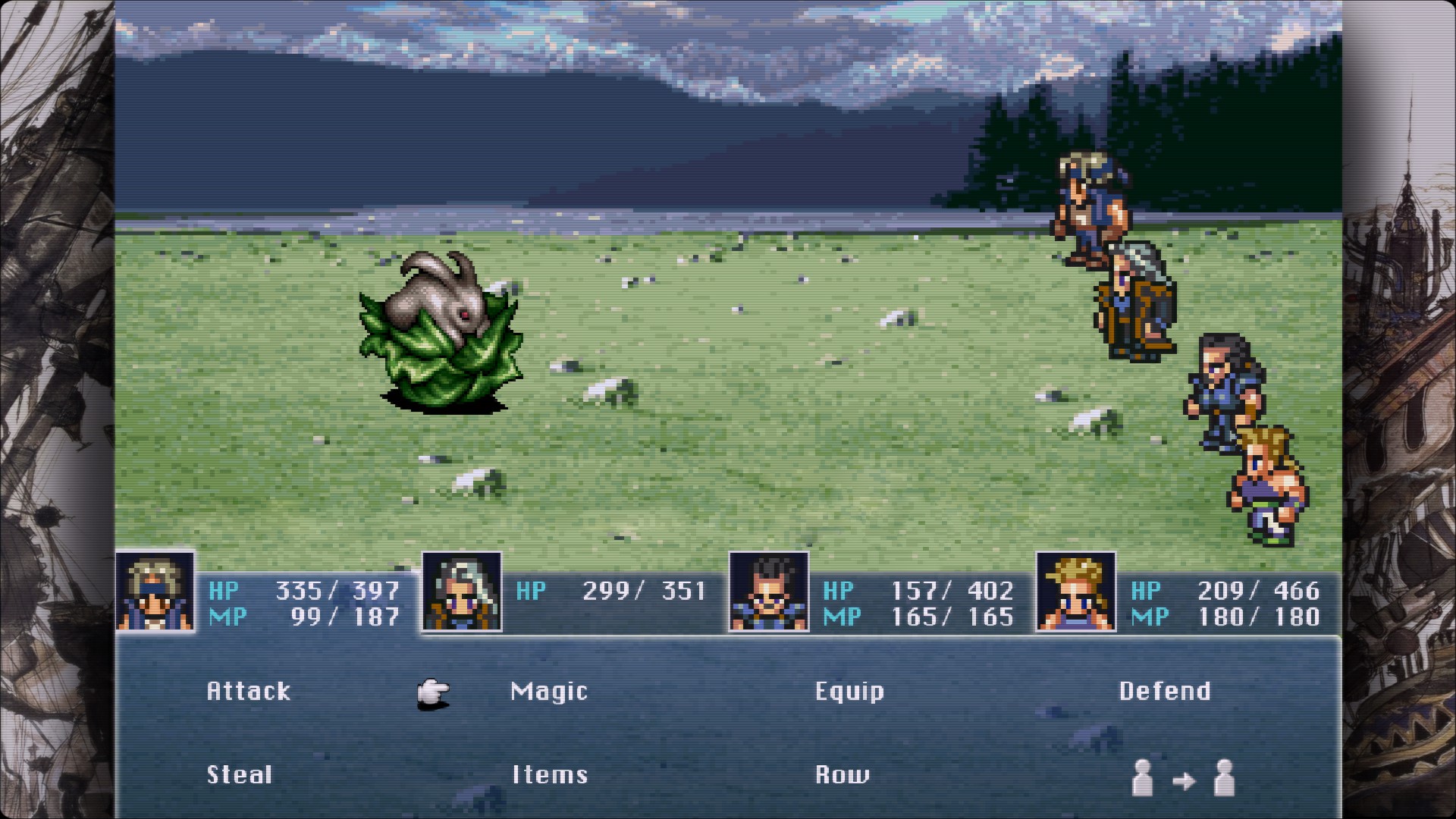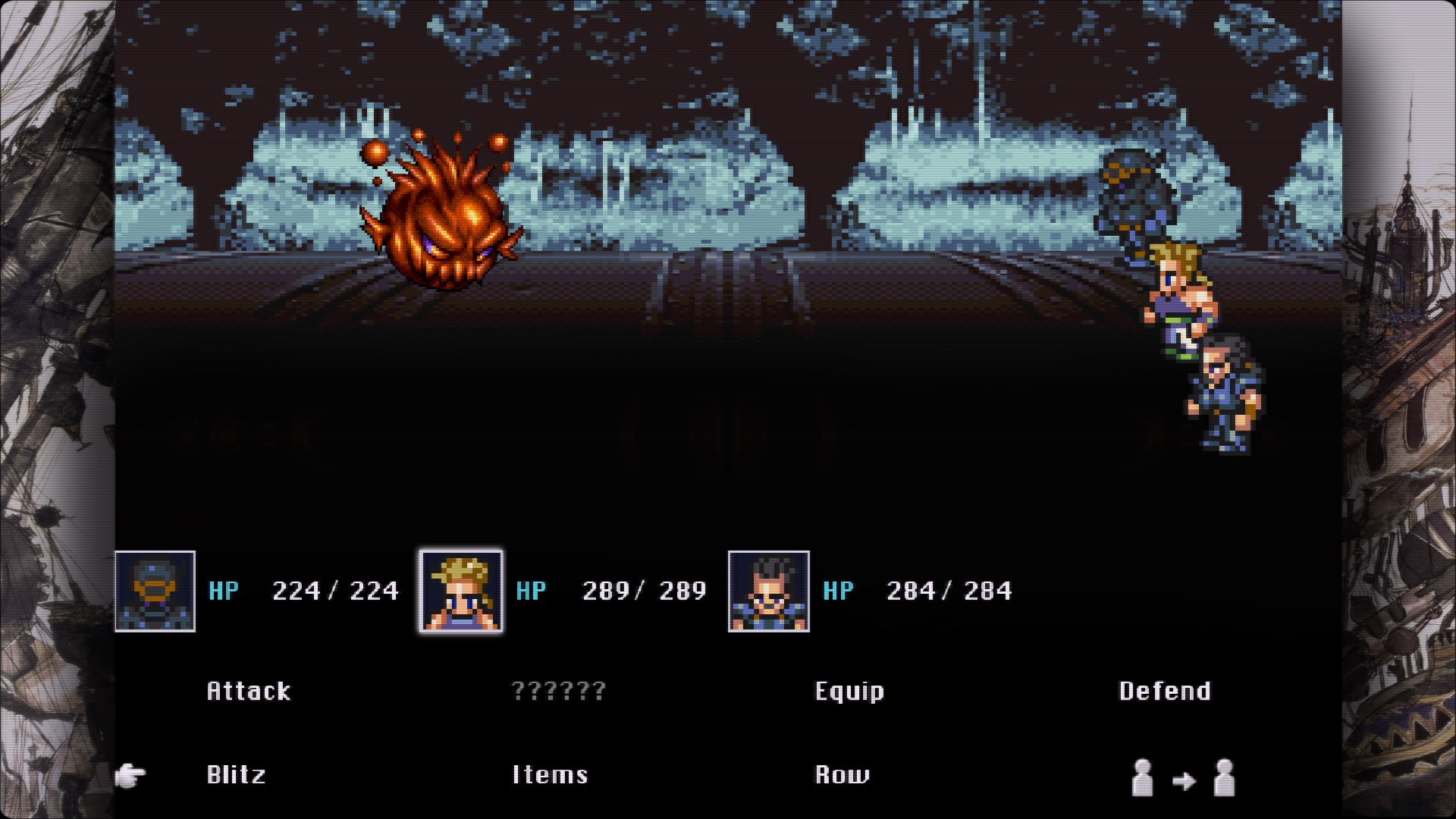# -*- coding: utf-8 -*-
# extractMesh(inputFile[, objFile][, keywordArg1...])
# Extract mesh from .dae.phyre file and convert to obj format
# If objFile is not specified, the data is processed but not written out
# See meshArgs0 below for the various optiona keyword arguments that
# can be specified. Note that most are for debugging purposes and should not
# be needed.
#
# extractDDS(inputFile, objFile[, keywordArg1...])
# Extract DDS file from a .dds.phyre file and convert to .dds format.
# See ddsArgs0 below for optional keyword arguments.
#------------------------------------------------------------------------------
#------------------------------------------------------------------------------
#------------------------------------------------------------------------------
#------------------------------------------------------------------------------
#------------------------------------------------------------------------------
#------------------------------------------------------------------------------
import os
import struct
# global variable names with default values
meshArgs0={
'faceHeaderAddr': 0x0, # Starting address to search for face header
'faceStartAddr': 0x0, # Starting address to search for face definitions
'vertStartAddr': None, # Address of first vertex block (None=find automatically)
'vertHeaderAddr': 0x0, # Starting address to search for vertex header
'includeNormals': False, # Include face normals
'invertVertUV': True, # Invert vertical coordinate of UV maps
'maxVert': 1.e3, # Warning if any vertices exceed max
'uvBounds': (-.01, 1.01), # Warn if any UV coordinates outside bounds
'normTol': 1.e-6, # Warn if normals aren't within norm tolerance
'debug': False, # Debugging output (messy)
'showWarn': True, #Turn off warnings about expected values
'maxWarns': 25 # maximum number of warnings per function call
}
ddsArgs0={'ddsStartAddr': None, # Start address for DDS data (None=find automatically)
'width': None, # Forced width resolution (None=find automatically)
'height': None, # Forced height resolution (None=find automatically)
'encode': None, # DXT1/DXT3/DXT5/ARGB8, (None=find automatically)
'mipMaps': None # Number of mip maps in file (None=find automatically)
}
meshArgs = []
ddsArgs = []
# Data to search for to find start of face index list
# Cannot be called as a keyword argument!
firstFace = struct.pack('3H', 0, 1, 2) # search for 0, 1, 2 as first face
encode0={'DXT5': {'bbp': 8, 'minDim': 4}, \
'DXT3': {'bbp': 8, 'minDim': 4}, \
'DXT1': {'bbp': 4, 'minDim': 4}, \
'ARGB8': {'bbp': 32, 'minDim': 1} \
}
#------------------------------------------------------------------------------
#------------------------------------------------------------------------------
# Generic functions
def parseKeywords(options0, kwargs):
# Parse provided keyword arguments, and fill in defaults to dict
options = options0.copy()
for key, val in kwargs.items():
options[key] = val
return options
#------------------------------------------------------------------------------
#------------------------------------------------------------------------------
# extractMesh functions
def extractMesh(inputFile, objFile=None, **kwargs):
# Primary driver for extracting mesh
global meshArgs
meshArgs = parseKeywords(meshArgs0, kwargs)
print("EXTRACTMESH")
print("Reading phyre file %s..." % inputFile)
with open(inputFile,'rb') as file:
f = file.read()
print("Extracting faces...")
faceSet = extractFaceSets(f)
if not faceSet:
raise Exception("Faces could not be found")
if meshArgs['debug']: print("Number of sets: %d" % len(faceSet))
if meshArgs['vertStartAddr'] is None:
nbyte = faceSet[-1]['nFace']*2*3
meshArgs['vertStartAddr'] = faceSet[-1]['addr'] + nbyte
if meshArgs['debug']:
print("Computed start address of vertices: " + hex(meshArgs['vertStartAddr']))
else:
print("User-supplied start address of vertices: " + hex(meshArgs['vertStartAddr']))
print("Finding vertex block addresses...")
vertBlockAddr = findVertAddresses(f, faceSet)
if vertBlockAddr is None:
raise Exception("Vertex addresses could not be found")
print("Extracting vertices...")
vertSet = extractVertSets(f, faceSet, vertBlockAddr)
print("Extracting UV maps...")
uvSet = extractUvSets(f, faceSet, vertBlockAddr)
if meshArgs['includeNormals']:
print("Extracting normals...")
normSet = extractNormSets(f, faceSet, vertBlockAddr)
else:
normSet = None
print("Ignoring normals")
if objFile is not None:
print("Writing object file to %s..." % objFile)
writeObjFile(objFile, faceSet, vertSet, uvSet, normSet)
print("Summary:")
print(" Total Sets: %d" % len(faceSet))
print(" Total Faces: %d" % sum(n['nFace'] for n in faceSet))
print(" Total vertices: %d" % sum(n['nVert'] for n in faceSet))
print(" ----------------------------------------------------------------------")
print(" | ID | Faces | Verts | Face Addr | Vert Addr | UV Addr | Norm Addr |")
print(" ----------------------------------------------------------------------")
for i in range(len(faceSet)):
if meshArgs['includeNormals']:
normAddr=hex(normSet['addr'])
else:
normAddr=""
if uvSet is None:
uvAddr=""
else:
uvAddr=hex(uvSet['addr'])
print(" | %2d | %5d | %5d | %9s | %9s | %9s | %9s |" % \
(i, faceSet['nFace'], faceSet['nVert'], \
hex(faceSet['addr']), hex(vertSet['addr']), \
uvAddr, normAddr))
print(" ----------------------------------------------------------------------")
#------------------------------------------------------------------------------
def extractFaceSets(f):
# Extract face sets by looking up header info
faceSet = []
print(" Finding start of face header blocks...")
match = meshArgs['faceHeaderAddr']
faceHeaderCatch=b'\xff\xff\xff\xff'
match = f.find(faceHeaderCatch, match+1)
while match > 0:
block = struct.unpack_from('27I', f, match)
nFace = block[13]/3
nVert = block[12]+1
valid = True
if nFace % 1 > 0: valid = False
if nFace <= 0: valid = False
if nFace > 0xffff: valid = False # needs to fit in uint16
if nVert < 3: valid = False # always at least 3 vertices
if nVert >= 0xffff: valid = False # needs to fit in uint16
if block[22] != 0: valid = False # face block offset (0 for first block)
if block[24] != nFace*2*3: valid = False # number of bytes in face block
if valid:
break
else:
match = f.find(faceHeaderCatch, match+1)
pos = match
if match < 0:
print(" FAIL: Couldn't find face header block")
return None
if meshArgs['debug']: print(" Start of face header blocks: " + hex(pos))
block = struct.unpack_from('27I', f, pos)
iset = 0
nFace = 0
faceAddr = 0
print(" Processing face header blocks...")
while block[0] == 0xffffffff:
# word-align for iset>0
if iset>0 and (nFace%2) == 1:
faceAddr += 2
nFace = int(block[13]/3)
nVert = block[12]+1
if nFace <= 0 or nFace > 0xffff or nVert < 3 or nVert > 0xffff:
print(" FAIL: Unexpected number of faces (%d) or verts (%d) for set %d" % (nFace, nVert, iset))
return None
# Find initial face address
if iset == 0:
print(" Finding face start address...")
faceAddr = findFaceStartAddr(f, nFace, nVert)
if faceAddr is None:
print(" FAIL: Could not find face start address")
return None
faceSet.append({'addr': faceAddr, \
'faces': [], \
'nFace': nFace, \
'nVert': nVert})
if meshArgs['debug']:
print(" Face ID: %2d Address: %10s #Faces: %5d #Verts: %5d" % (iset, hex(faceAddr), nFace, nVert))
# Grab faces
posFace = faceSet[iset]['addr']
for i in range(nFace):
face = struct.unpack_from('3H', f, posFace)
if max(face) + 1 > nVert:
print(" FAIL: Could not read faces, vertex index (%d) higher than expected max (%d) on set %d" % (max(face)+1, nVert, len(faceSet)-1))
return None
elif i==0 and face != (0, 1, 2):
print(" WARN: Expected start of faces to be (0,1,2), instead received (%d, %d, %d) for set %d" % (face[0], face[1], face[2], i))
faceSet[iset]['faces'].append(face)
posFace += 6
maxVert = max(max(x) for x in faceSet[iset]['faces'])+1
if maxVert < nVert:
print(" WARN: Max vert index (%d) less than nVert (%d) for set %d" % (maxVert, nVert, iset))
faceAddr += 2*3*nFace
pos += 27*4
iset += 1
block = struct.unpack_from('27I', f, pos)
if not faceSet:
print(" FAIL: Could not read face header block")
return None
return faceSet
def findFaceStartAddr(f, nFace, nVert):
pos0 = meshArgs['faceStartAddr']
match = f.find(firstFace, pos0)
while match >= 0:
if meshArgs['debug']:
print(" Possible face start address: " + hex(match))
pos = match
iFail = False
imax = 0
for i in range(nFace):
face = struct.unpack_from('3H', f, pos)
if max(face) + 1 > nVert or max(face) > imax + 3:
if meshArgs['debug']:
print(" Face values (face=%d, max=%d, prevMax=%d, nVert=%d) not consistent at address. Continuing search..." % (i, max(face), imax, nVert))
iFail = True
break;
imax = max(imax, max(face))
pos += 6
if iFail:
pos0 = pos
match = f.find(firstFace, pos0)
else:
if meshArgs['debug']:
print(" Found face start address: " + hex(match))
return match
return None
#------------------------------------------------------------------------------
def findVertAddresses(f, faceSet):
# Required for the few files that don't have the same number of floats per
# vertex in the vertex block data. Seems to work for everything
headerCatch=struct.pack('2I', 12, int(faceSet[0]['nVert']))
print(" Finding start of vertex header blocks...")
offset = meshArgs['vertHeaderAddr']
match = f.find(headerCatch, offset)
while match >= 0:
block = struct.unpack_from('16I', f, match)
if block[14] == faceSet[0]['nVert']*4*3:
break;
match = f.find(headerCatch, match+1)
if match < 0:
print(" FAIL: Could not find start of header info")
return None
pos = match
if meshArgs['debug']: print(" Start of header info: " + hex(pos))
addr = [meshArgs['vertStartAddr']]
iset = 0
s = 0 # current position relative to last set address
print(" Processing vertex header blocks...")
while iset <= len(faceSet)-1:
pos0 = pos
# Check for equally sized sets
imult = 1
while (iset + imult) < len(faceSet) and faceSet[iset]['nVert'] == faceSet[iset+imult]['nVert']:
imult += 1
if meshArgs['debug'] and imult > 1:
print(" Sets %d-%d have same # verticies. Assuming equal split" % (iset, iset+imult-1))
(pos, s) = getHeaderBlockSize(f, pos, faceSet[iset]['nVert'])
if s == 0:
print(" FAIL: Could not read header info for set %d" % iset)
return None
s = int(s/imult)
for i in range(imult):
addr.append(addr[-1] + s)
if meshArgs['debug']:
print(" Set %d has %d floats per vertex (header info starts at %s)" \
% (iset, s/4/faceSet[iset]['nVert'], hex(pos0)))
iset += 1
return addr
#------------------------------------------------------------------------------
def getHeaderBlockSize(f, pos, nVert):
vertSize = 0
info = struct.unpack_from('16I', f, pos)
if info[0] != 12:
return (pos, vertSize)
while info[1] == nVert:
pos += 16*4
vertSize += info[0]*info[1] # bytes of total vertex block
info = struct.unpack_from('16I', f, pos)
return (pos, vertSize)
#------------------------------------------------------------------------------
def extractVertSets(f, faceSet, vertBlockAddr):
# Pull vertex data
vertSet = []
iWarn = 0
for iset in range(len(faceSet)):
nVert = faceSet[iset]['nVert']
pos = vertBlockAddr[iset]
vertSet.append({'addr': pos, 'nVert': nVert, 'verts': []})
if meshArgs['debug']:
print(" Vert set %2d at %s" % (iset, hex(vertSet[iset]['addr'])))
for iv in range(nVert):
vert = struct.unpack_from('3f', f, pos)
if meshArgs['showWarn'] and (max(map(abs,vert)) > meshArgs['maxVert']):
iWarn += 1
if iWarn <= meshArgs['maxWarns']:
print(" WARN: Vertex %d in set %d has large values! " \
% (iv, iset) + "(%.8f %.8f %.8f)" % vert)
elif iWarn == meshArgs['maxWarns'] + 1:
print(" Additional warnings suppressed")
vertSet[iset]['verts'].append(vert)
pos += 3*4
return vertSet
#------------------------------------------------------------------------------
def extractUvSets(f, faceSet, vertBlockAddr):
# Pull UV data
uvSet = []
iWarn = 0
# Check if there's room for UV maps in first set
nVert = faceSet[0]['nVert']
if len(faceSet) == 1:
nfpv = int((len(f)-1 - vertBlockAddr[0])/4/nVert)
else:
nfpv = (vertBlockAddr[1] - vertBlockAddr[0])/4/nVert
if nfpv < 8:
if meshArgs['showWarn']:
print(" NOTE: UV maps not present (%f floats per vert). Does a texture file exist?" % nfpv)
return None
for iset in range(len(faceSet)):
nVert = faceSet[iset]['nVert']
pos = vertBlockAddr[iset] + (3+3)*4*nVert
uvSet.append({'addr': pos, 'nVert': nVert, 'uvs': []})
if meshArgs['debug']:
print(" UV set %2d at %s" % (iset, hex(uvSet[iset]['addr'])))
for iv in range(nVert):
uv = struct.unpack_from('2f', f, pos)
if meshArgs['showWarn'] and \
(max(uv) > meshArgs['uvBounds'][1] or min(uv) < meshArgs['uvBounds'][0]):
iWarn += 1
if iWarn <= meshArgs['maxWarns']:
print(" WARN: UV map %d in set %d is out of expected bounds! "\
% (iv, iset) + "(%.8f %.8f)" % uv)
elif iWarn == meshArgs['maxWarns'] + 1:
print(" Additional warnings suppressed")
uvSet[iset]['uvs'].append(uv)
pos += 2*4
if meshArgs['invertVertUV']:
print(" Inverting vertical component of UV maps...")
invertUv(uvSet)
return uvSet
#------------------------------------------------------------------------------
def extractNormSets(f, faceSet, vertBlockAddr):
# Pull normals data
normSet = []
iWarn = 0
for iset in range(len(faceSet)):
nVert = faceSet[iset]['nVert']
pos = vertBlockAddr[iset] + nVert*4*(3)
normSet.append({'addr': pos, 'nVert': nVert, 'norms': []})
if meshArgs['debug']:
print(" Normals set %2d at %s" % (iset, hex(normSet[iset]['addr'])))
for iv in range(nVert):
nrm = struct.unpack_from('3f', f, pos)
if meshArgs['showWarn'] and (abs(l2Norm(nrm)-1.0) > meshArgs['normTol']):
iWarn += 1
if iWarn <= meshArgs['maxWarns']:
print(" WARN: Norm %d in set %d is outside tolerance! "\
%(iv, iset) + "(%.8f)" % l2Norm(nrm))
elif iWarn == meshArgs['maxWarns'] + 1:
print(" Additional warnings suppressed")
normSet[iset]['norms'].append(nrm)
pos +=3*4
return normSet
#------------------------------------------------------------------------------
def invertUv(uvSet):
# Invert UV map
for iset in range(len(uvSet)):
for iv in range(uvSet[iset]['nVert']):
uvSet[iset]['uvs'][iv] = (uvSet[iset]['uvs'][iv][0], \
1.0 - uvSet[iset]['uvs'][iv][1])
#------------------------------------------------------------------------------
def l2Norm(x):
# Simple L2 norm
return sum(y**2 for y in x)**.5
#------------------------------------------------------------------------------
def writeObjFile(objFile, faceSet, vertSet, uvSet, normSet=None):
# Write the .obj file
file = open(objFile, 'w')
file.write("# %s\n" % os.path.basename(objFile))
file.write("# Total vertices: %d\n" % sum(face['nVert'] for face in faceSet))
file.write("# Total faces: %d\n" % sum(face['nFace'] for face in faceSet))
file.write("#\n# Vertices\n")
for iset in range(len(vertSet)):
if iset == 0:
faceSet[0]['offset'] = 1
else:
faceSet[iset]['offset'] = faceSet[iset-1]['offset'] + faceSet[iset-1]['nVert']
file.write("# Starting Address: %s (%d vertices)\n" \
% (hex(vertSet[iset]['addr']), vertSet[iset]['nVert']))
for iv in range(vertSet[iset]['nVert']):
file.write("v %.8e %.8e %.8e\n" % vertSet[iset]['verts'][iv])
if uvSet is not None:
file.write("#\n# UV Maps\n")
for iset in range(len(uvSet)):
file.write("# Starting Address: %s (%d UV vertices)\n" \
% (hex(uvSet[iset]['addr']), uvSet[iset]['nVert']))
for iv in range(uvSet[iset]['nVert']):
file.write("vt %.8e %.8e\n" % uvSet[iset]['uvs'][iv])
if normSet is not None:
file.write("#\n# Normals\n")
for iset in range(len(normSet)):
file.write("# Starting Adress: %s (%d normals)\n" \
% (hex(normSet[iset]['addr']), normSet[iset]['nVert']))
for iv in range(normSet[iset]['nVert']):
file.write("vn %.8e %.8e %.8e\n" % normSet[iset]['norms'][iv])
file.write("#\n# Face indices\n")
for iset in range(len(faceSet)):
file.write("# Starting Address: %s (%d faces, %d vertices)\n" \
% (hex(faceSet[iset]['addr']), faceSet[iset]['nFace'], \
faceSet[iset]['nVert']))
file.write("g %s\n" % ("obj_" + str(iset)))
offset = faceSet[iset]['offset']
for i in range(faceSet[iset]['nFace']):
face = faceSet[iset]['faces']
face = tuple(j+offset for j in face)
if uvSet is not None and normSet is None:
file.write("f %d/%d %d/%d %d/%d\n" % \
(face[0], face[0], \
face[1],face[1], \
face[2], face[2]))
elif uvSet is None and normSet is not None:
file.write("f %d//%d %d//%d %d//%d\n" % \
(face[0], face[0], \
face[1],face[1], \
face[2], face[2]))
elif uvSet is None and normSet is None:
file.write("f %d %d %d\n" % (face[0], face[1], face[2]))
else:
file.write("f %d/%d/%d %d/%d/%d %d/%d/%d\n" % \
(face[0], face[0], face[0], \
face[1], face[1], face[1], \
face[2], face[2], face[2]))
file.close()
#------------------------------------------------------------------------------
#------------------------------------------------------------------------------
# DDS functions
def extractDDS(phyreFile, ddsFile, **kwargs):
# Main driver for DDS file extraction
global ddsArgs, encode
ddsArgs = parseKeywords(ddsArgs0, kwargs)
print("EXTRACTDDS")
if isinstance(ddsArgs['ddsStartAddr'], str):
ddsArgs['ddsStartAddr'] = int(ddsArgs['ddsStartAddr'], 16)
with open(phyreFile, 'rb') as myfile:
f = myfile.read()
if ddsArgs['encode'] is None:
(ddsArgs['encode'], ddsArgs['ddsStartAddr']) = findEncoding(f)
print("Encoding: " + ddsArgs['encode'])
print("DDS start address: " + hex(ddsArgs['ddsStartAddr']))
else:
if ddsArgs['ddsStartAddr'] is not None:
raise Exception("ddsStartAddr must be specified if encoding type is specified " \
+ "(Try 0xa68 for DXT or 0xa69 for ARGB8)")
print("User supplied encoding: " + ddsArgs['encode'])
print("User supplied start address: " + hex(ddsArgs['ddsStartAddr']))
encode = encode0[ddsArgs['encode']]
(width, height, mips) = getHeaderData(f)
if (ddsArgs['width'] is None) != (ddsArgs['height'] is None): # biconditional and
raise Exception('Width and height must be specified together')
elif ddsArgs['width'] is None:
(ddsArgs['width'], ddsArgs['height'])= (width, height)
print("Extracted resolution: %dx%d" % (ddsArgs['width'], ddsArgs['height']))
else:
print("User provided resolution: %dx%d" % (ddsArgs['width'], ddsArgs['height']))
if ddsArgs['mipMaps'] is None:
print("Number of mip maps: %d" % mips)
ddsArgs['mipMaps'] = mips
else:
print("User provided number of mip maps: %d" % ddsArgs['mipMaps'])
header=buildHeader()
with open(ddsFile, 'wb') as myfile:
myfile.write(header + f[ddsArgs['ddsStartAddr']:])
print("File written to: " + ddsFile)
#------------------------------------------------------------------------------
def findEncoding(dds_data):
# Determine encoding by searching data structure
for key, value in encode0.items():
s = dds_data.find(str.encode(key))
if s >= 0:
startaddr = s + len(key) + 0x26
return (key, startaddr)
raise Exception('Encoding scheme could not be found')
#------------------------------------------------------------------------------
def getHeaderData(f):
# Find resolution and number of mip maps
import math
match = f.find(b"PS3Data")
if match<0:
raise Exception("Could not find start of header data")
pos = match+16*3
mips = struct.unpack_from('I', f, pos)[0]
pos += 16
(width, height) = struct.unpack_from('2I', f, pos)
if (math.log2(width) % 1) != 0 :
print("WARN: Width not a power of 2")
elif max(width,height) > 4096:
print("WARN: Large width or height")
elif min(width,height) < 1:
print("WARN: Small width or height")
elif math.ceil(math.log2(max(width, height))) < mips:
print("WARN: More mipmaps than expected")
return(width, height, mips)
#------------------------------------------------------------------------------
def buildHeader():
# build DDS header, assume DXT5
def uf(x): return struct.pack('I', x)
# dwFlags flags
ddsd = {'caps': 0x1, 'height': 0x2, 'width': 0x4, 'pitch': 0x8, \
'pixelFormat': 0x1000, 'mipMapCount': 0x20000, \
'linearSize': 0x80000, 'depth': 0x800000
}
# dwCaps flags
ddscaps = {'complex': 0x8, 'mipMap': 0x400000, 'texture': 0x1000}
# dwCaps2 flags
# ddscaps2 = {'cubeMap': 0x200, 'volume': 0x200000, \
# 'positiveX': 0x400, 'negativeX': 0x800, \
# 'positiveY': 0x1000, 'negativeY': 0x2000, \
# 'positiveZ': 0x4000, 'negativeZ': 0x8000
# }
dwSize = uf(124)
dwFlags0 = ddsd['caps'] + ddsd['height'] + ddsd['width'] \
+ ddsd['pixelFormat'] + ddsd['mipMapCount']
dwHeight = uf(ddsArgs['height'])
dwWidth = uf(ddsArgs['width'])
dwPitchOrLinearSize = uf(0) # gets set depending on encoding below
dwDepth = uf(0)
dwMipMapCount = uf(ddsArgs['mipMaps'])
dwReserved1 = b''.join([uf(0) for i in range(11)])
ddspf = buildDdsPixelFormat()
dwCaps = uf(ddscaps['complex'] + ddscaps['mipMap'] + ddscaps['texture'])
dwCaps2 = uf(0)
dwCaps3 = uf(0)
dwCaps4 = uf(0)
dwReserved2 = uf(0)
if ddsArgs['encode'][0:3] == 'DXT':
dwPitchOrLinearSize = uf(max(1, int(((ddsArgs['width'] + 3)/4)))*(encode['bbp']*2))
dwFlags = uf(dwFlags0 + ddsd['linearSize'])
elif ddsArgs['encode'] == 'ARGB8':
dwPitchOrLinearSize = uf(int((ddsArgs['width']*encode['bbp']+7)/8))
dwFlags = uf(dwFlags0 +ddsd['pitch'])
else:
raise Exception("Unexpected encoding type: " + ddsArgs['encode'])
return (b'DDS ' + dwSize + dwFlags + dwHeight + dwWidth \
+ dwPitchOrLinearSize + dwDepth + dwMipMapCount + dwReserved1 \
+ ddspf + dwCaps + dwCaps2 + dwCaps3 + dwCaps4 + dwReserved2 )
#------------------------------------------------------------------------------
def buildDdsPixelFormat():
# Build DDSPixelFormat structure for header (assume DXT5)
def uf(x): return struct.pack('I', x)
# dwFlags flags
ddpf = {'alphaPixels': 0x1, 'alpha': 0x2, 'fourCC': 0x4, 'rgb': 0x40, \
'yuv': 0x200, 'luminance': 0x20000
}
dwSize = uf(32)
if ddsArgs['encode'][0:3] == 'DXT':
dwFlags = uf(ddpf['fourCC'])
dwFourCC = str.encode(ddsArgs['encode'])
dwRGBBitCount = uf(0)
dwRBitMask = uf(0)
dwGBitMask = uf(0)
dwBBitMask = uf(0)
dwABitMask = uf(0)
elif ddsArgs['encode'] == 'ARGB8':
dwFlags = uf(ddpf['alphaPixels'] + ddpf['rgb'])
dwFourCC = uf(0)
dwRGBBitCount = uf(encode['bbp'])
dwRBitMask = uf(0x00ff0000)
dwGBitMask = uf(0x0000ff00)
dwBBitMask = uf(0x000000ff)
dwABitMask = uf(0xff000000)
else:
raise Exception("Unexpected encoding type: " + ddsArgs['encode'])
return(dwSize + dwFlags + dwFourCC + dwRGBBitCount + dwRBitMask \
+ dwGBitMask + dwBBitMask + dwABitMask)







